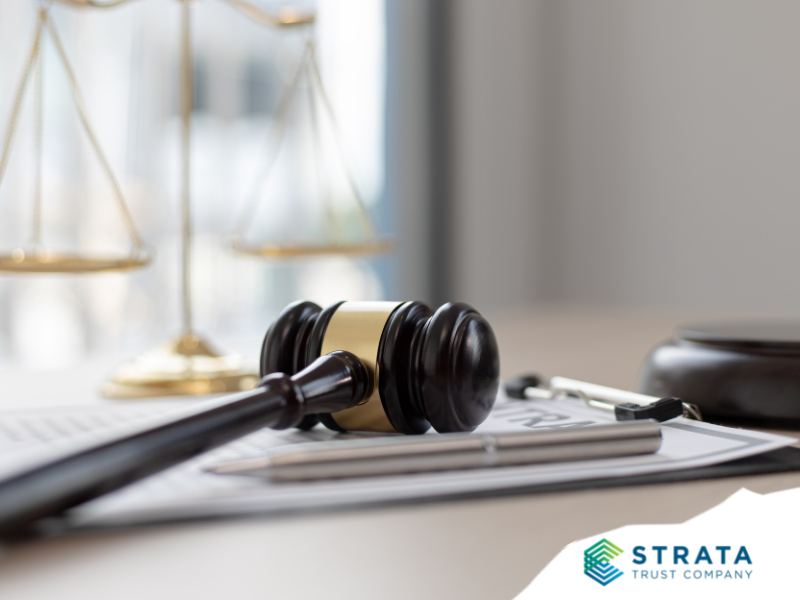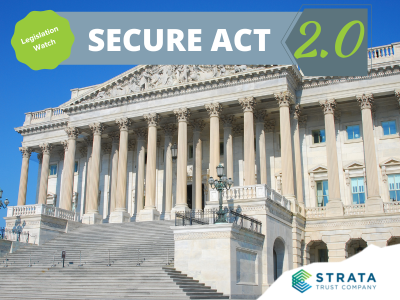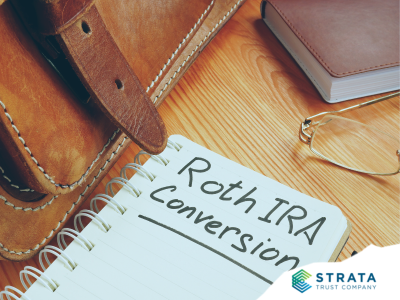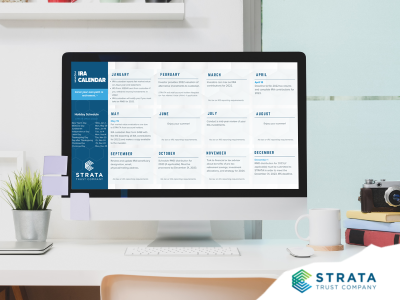Three years after passing the SECURE Act of 2019, Congress passed the SECURE Act 2.0 to further advance the bipartisan policy initiative of increasing Americans’ retirement savings. Signed into law on December 29, 2022, SECURE 2.0 contains more than 90 provisions designed to encourage businesses, especially small employers, to adopt retirement plans; simplify plan administration and operations; increase opportunities for individuals to save for emergencies and retirement; and help individuals preserve their retirement savings.
Some of the provisions of SECURE 2.0 are effective in 2023, and others have delayed effective dates into 2024, 2025, and beyond. The staggered effective dates give regulatory agencies time to draft and issue guidance to interpret and implement these law changes. Changes affecting Traditional and Roth IRAs, as well as SEP and SIMPLE IRA plans, include the following.
Effective in 2023

Required Minimum Distributions (RMDs)
- The RMD starting age increases to 73 for IRA owners who reach age 72 after December 31, 2022. In 2033, the starting age will increase to 75 for those who reach age 74 after December 31, 2032.
- The excise tax for failing to withdraw an RMD is reduced from 50% to 25% of the amount not taken. The tax will be further reduced to 10% if the RMD is taken within a 2-year correction window.
SEP and SIMPLE IRA Plans
- Businesses with no more than 50 employees may now take a tax credit for 100% of plan startup costs, up to a maximum of $5,000 for 3 years. These businesses may also take a tax credit for a percentage of plan contributions, up to a maximum of $1,000 per participant for the first 5 plan years. The tax credit is phased out for businesses with 51 – 100 employees.
- Employees participating in a SEP or SIMPLE IRA plan may elect to treat plan contributions as Roth contributions. IRS guidance is needed to address IRA document and employee election requirements.
Errors & Corrections
- If one of an IRA owner’s IRAs is involved in a prohibited transaction, only the IRA involved will be disqualified. The interpretation of this rule has not changed, but the statutory language is now clear.
- The IRS’s Employee Plans Compliance Resolution System (EPCRS), which permits employers to self-correct certain plan errors for little or no cost, applies to inadvertent IRA errors. The IRS must update the EPCRS to provide details by the end of 2024.
Distributions
- A 3-year time limit applies to repayments of Qualified Birth and Adoption Distributions (QBADs). QBADs taken before December 29, 2022, can be repaid by December 31, 2025.
- IRA owners who live in a federally declared disaster area may take a distribution of up to $22,000 within 180 days of the disaster, free from the 10% early distribution tax, and may repay the distribution to avoid taxation within 3 years.
- IRA owners with a doctor certification of a terminal illness are exempt from the 10% early distribution tax.
- The 10% early distribution tax no longer applies to the removal of an excess IRA contribution and attributable earnings.
- The $100,000 limit on Qualified Charitable Distributions (QCDs) will be extended for inflation.
Effective in 2024

Traditional and Roth IRA Contributions
- The catch-up contribution limit for IRA owners age 50 and older – currently $1,000 per year – will be indexed for inflation.
Rollovers to Roth IRAs
- Unused 529 college savings account assets may be rolled over to a Roth IRA if the 529 has been open for at least 15 years. Rollovers are limited to the Roth IRA contribution limit for the year and a lifetime limit of $35,000.
SIMPLE IRA Plans
- Employers may make an additional nonelective contribution of up to 10% of compensation – not to exceed $5,000 – to SIMPLE IRA participants.
- Employers may consider an employee’s qualified student loan payments as deferrals for purposes of making matching contributions to a SIMPLE IRA.
- An employer with up to 25 employees may allow SIMPLE IRA deferrals and catch-up contributions up to 110% of the statutory limit in effect for the year. Employers with 26 – 100 employees may apply the increased limits if the employer provides a 4% matching contribution or a 3% nonelective contribution.
- An employer may terminate a SIMPLE IRA mid-year if the employer adopts a safe harbor 401(k) plan.
Distributions
- IRA owners may roll over or transfer assets from an IRA, making substantially equal periodic payments to another IRA or retirement plan without incurring the 10% retroactive penalty for modifying the payment arrangement, as long as total distributions from both plans/IRAs continue to equal the required payments.
- Victims of domestic abuse may withdraw up to $10,000, exempt from the 10% early distribution tax, and repay it within 3 years to avoid taxation.
Effective in 2025

SIMPLE IRA Plans
- The catch-up contribution limit for SIMPLE IRA plans increases for participants aged 60–63 to the greater of $5,000 (indexed) or 50% higher than the SIMPLE catch-up contribution limit in effect.
Much of the rest of SECURE 2.0 is focused on employer-sponsored retirement plans. This includes provisions that permit employers to add Emergency Savings Accounts to their plans for participants to save up to $2,500 in after-tax Roth contributions for emergency withdrawals, and mandates for new 401(k) and 403(b) plans established after December 29, 2022, to implement automatic enrollment, beginning in 2025.
For More Information
Stay tuned for more details as the IRS begins issuing guidance to help IRA owners, small business owners, IRA custodians, and other service providers implement these changes. STRATA will continue to provide updates as they are received on this piece of legislation. For questions or concerns about how these changes may affect your STRATA IRA, contact our self-directed IRA experts.













